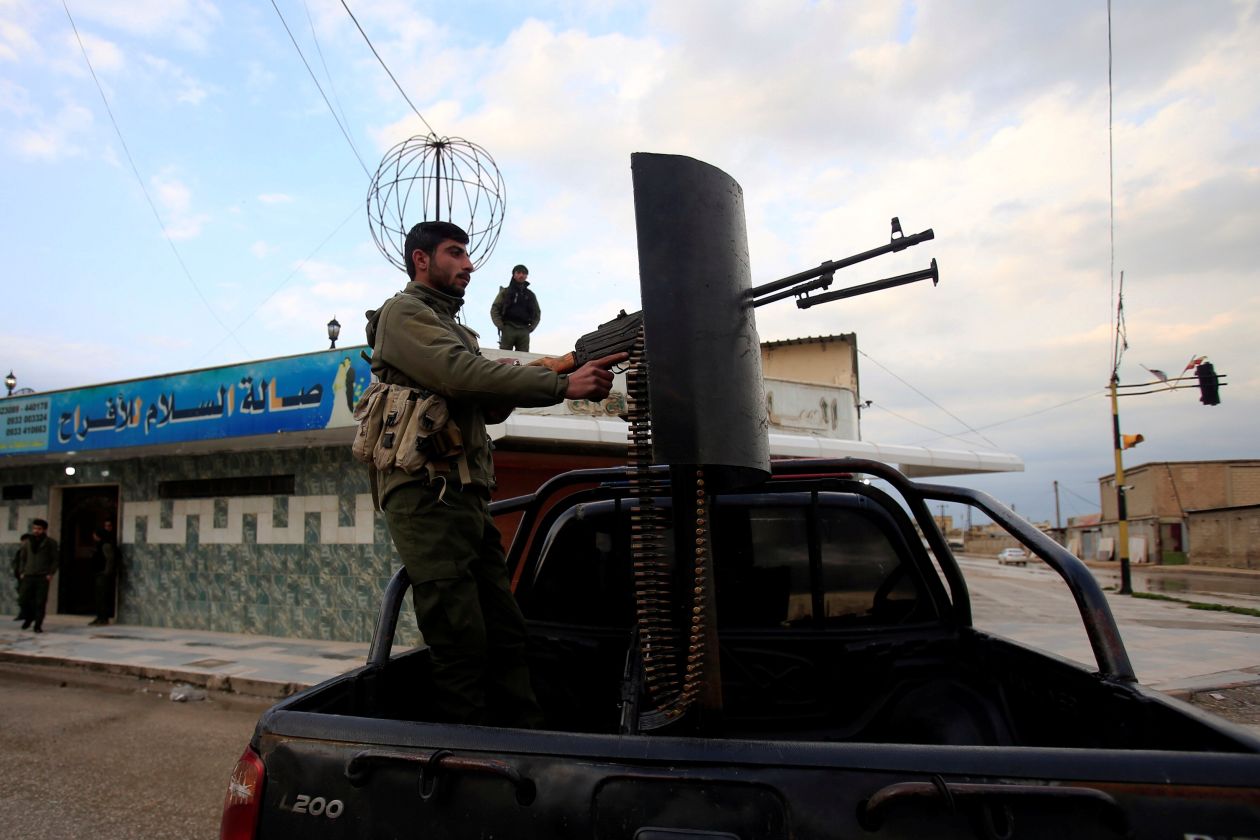By the Wall Street Journal–
With Islamic State’s physical caliphate destroyed, the West faces an urgent challenge: what to do with foreign fighters and their families. Mishandling the problem could create decades of security threats in the U.S. and Europe, and several American allies are bungling this test.
Some 40,000 foreigners traveled to Iraq and Syria to join ISIS in recent years. While more recruits came from the Middle East and North Africa, some 5,000 left Europe to join the caliphate. A 2018 report from the George Washington University Program on Extremism estimated that about 300 were American.
Today the Syrian Democratic Forces have detained about 1,000 foreign fighters, though the number is expected to rise. Western European countries didn’t produce as many fighters as, say, Tunisia, but a substantial number of Europeans remain in custody. Our sources say the U.S. isn’t aware of any Americans currently held by the SDF.
Thousands of foreign fighters died on the battlefield, but now the fate of the survivors looms large. Veteran terrorists have returned home in the past with deadly consequences. Several perpetrators of the November 2015 terrorist attacks in Paris, which killed 130, gained experience in Syria.
In February President Trump tweeted that the U.S. “is asking Britain, France, Germany and other European allies to take back” their ISIS fighters and prosecute them at home. Indonesia, Morocco, Russia, and Sudan started the process months ago, but Western European governments are resisting.
Bending to domestic political pressure, European politicians like U.K. Home Secretary Sajid Javid have vowed to reject ISIS members and even strip them of citizenship. German and French officials also publicly express skepticism about accepting imprisoned terrorists. Countries that criticized the U.S. over Guantanamo Bay now are turning a blind eye to the detention of their citizens elsewhere.
Europeans say Mr. Trump is being hypocritical because he has tried to prevent 24-year-old Hoda Muthana, who says she regrets joining ISIS in 2014, from returning to the U.S. Yet the case is a red herring: The Administration says Ms. Muthana has never been a U.S. citizen. When captured in the war zone, Americans have been brought back for trial in the U.S.
Some European countries worry their justice systems won’t be up to the task of managing returnees. Courts in the U.K. have struggled to win convictions in terror cases, while other European countries could hand down dangerously short sentences. But this is a case for toughening antiterrorism laws, not ignoring the problem. If a country is concerned about ISIS members radicalizing other prisoners, it can isolate them.
The SDF has treated detainees humanely, but it can’t hold them forever. The group eventually will have no choice but to let the prisoners go—making a manageable security threat much worse. These battle-hardened fighters are especially dangerous given their practical knowledge and the respect they could command among would-be jihadists.
Many released fighters would slip into Iraq, blend in with sympathetic Sunni populations, and prepare for an ISIS revival. Others could exploit security vacuums in Libya or Somalia or jump-start conflicts in other unstable regions. Perhaps the greatest risk is that some will return to the West undetected alongside refugees. Countries hesitant to take back their citizens now should realize they might return anyway—clandestinely.
The Kurds have proposed an international tribunal to prosecute foreign fighters, but ad-hoc justice systems are costly and time-consuming and still have the issue of where to hold prisoners after conviction. Some ISIS fighters also may face justice in Iraq or a third country, perhaps Algeria or Morocco. But this creates unnecessary legal complexity, and the Trump Administration continues to push for home-country repatriation.
When Mr. Trump announced plans for an immediate U.S. withdrawal from Syria in December, allies criticized the move as endangering the West’s security. They were right, and Mr. Trump partly reversed the decision. Now the roles have flipped, with some prioritizing domestic politics over international security. If Mr. Trump changed course, they can too.
Appeared in the April 13, 2019, print edition.


Leave A Comment
You must be logged in to post a comment.